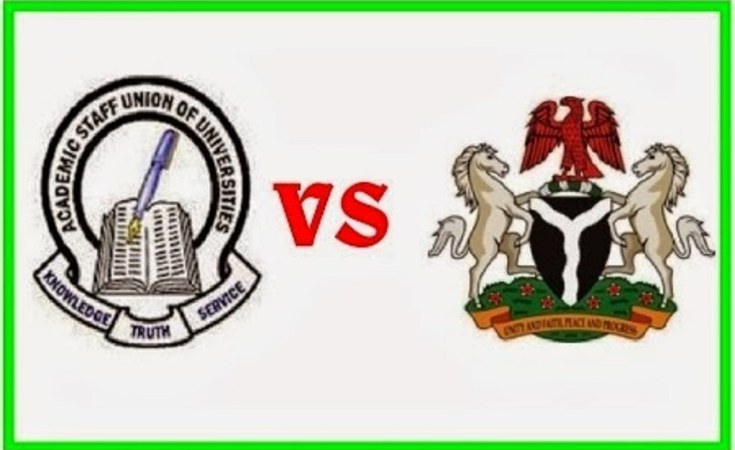

On March 23, 2020, the Academic Staff Union Of Universities (ASUU), announced that it was embarking on a nationwide industrial action following a number of irreconcilable differences it had with the federal government. This call by ASUU did not echo beyond music to the ears of Nigerian students and Nigerians alike. This would not be the first time the union is resorting to industrial action in the wake of a disagreement with the government of the day.
But then, the issue of lingering strike action by ASUU is not only traceable to the present administration, as virtually every Presidency in Nigeria’s Fourth Republic has had its fair share on strike action. This is why to a certain degree, the ongoing strike is considered to be a culmination of failures by past administrations to live up to expectations with regard to the funding and revitalisation of public universities in Nigeria.
This year, however, a fresh bone of contention was introduced into the feud. An integrated payroll system designed to integrate and harmonize the remuneration of varsity lecturers in a manner which was going to hurt the earnings of many academicians, a situation which would further aggravate the perceived regrettable emolument paid to lecturers in Nigeria.
As a result, the university teachers endured all odds to kick against this imposition by the federal government. To ensure not being drawn into the mesh of government’s Integrated Payroll and Personnel Information System, ASUU quickly moved to design a payment system of its own, the University Transparency and Accountability Solution (UTAS).
As observed by Eko Hot Blog, even though ASUU had fronted lack of proper funding of public universities as the putative reason behind the industrial action, it was quite apparent the IPPIS was the last straw which broke the camel’s back, since this payment system would deny secondary remunerations for different visiting scholars engaged in different levels of adjunct teaching around the country.
READ ALSO: No Resumption Until… – ASUU
From all indication, the running theme in this battle between ASUU and the Federal Government has been funding, from unpaid allowances to unreleased revitalization funds to a contentious payroll system, and there is no denying the fact that the government is guilty of all charges.
As part of its focal objectives to ensure quality education across the globe, the United Nations Educational, Scientific and Cultural Organization (UNESCO), have set a benchmark for every nation of the world to apportion at least 26% of its annual budget for education; but Nigeria, perhaps the most notorious of all in flouting this directive have continually struggled to earmark 10% of her budget for education. As a consequence, our public universities, a key component of our educational system has been left in ruins, unfit to impart universal knowledge to our teeming youths who continue to struggle to match their foreign counterparts in other parts of the world who are being exposed to global best standards in education.
Of course, Nigeria’s political elite has not been the casualty of this broken system, since their progenies are privileged enough to afford the best quality of education money can buy. This is where the legitimacy of the ASUU cause comes into questioning, and a few questions may pop up at this time, the first being “Is the present ASUU strike a fight to reform the system or merely a selfish bargain on the part of varsity lecturers to line their pockets with better emoluments? because given the nature of this rift the two could be narrowly separated.
There is also the factor of Nigerian students, whose loss of a whole year during a critical point of their lives represents a more regrettable tragedy than meets the eye. For the academic staff union, the result of the lingering strike action will be worth the wait, for not only the lecturers of course, but for the system at large.
As initially granted, the narrative of industrial action by the Academic Staff Union of Universities (ASUU) is no new knowledge to us. It has become music to our ears. But even the best music eventually loses taste when it is played for too long.
Yesterday, December 6th, 2020, ASUU president, Professor Biodun Ogunyemi in his briefing with journalists re-iterated the union’s resolve to continue the 9-month strike despite pleas by parents and other well-meaning Nigerians for the union to take one on the chin and allow Nigerian students to return to their lecture theatres. At this juncture, it becomes pertinent to ask if ASUU’s defiance remains a fair resolve necessary to engender real change in the system or if it has turned into a foul whose outcome continues to portend doom for those who make up the grass in this battle between elephants.
Atiku Intensifies Effort As PDP Governors Reject Coalition To Unseat Tinubu. PDP says no merger…
Epe stakeholders commend Chairman Princess Surah Animashaun for supporting CODAF’s waste-to-wealth project. CODAF invests N20…
Tanzania's main opposition party, CHADEMA, has vehemently protested a decision by the election commission to…